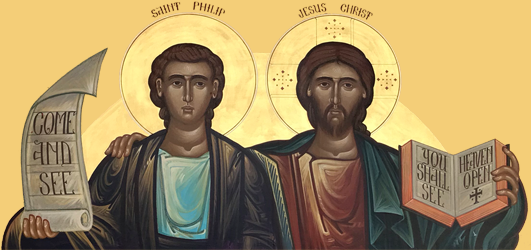Leviticus 15:31
“Thus you shall make the children of Israel cautious about their uncleanness, lest they die in their uncleanness when they defile My tabernacle among them.’” (OSB modified)
As the “Purity Code” (Lev 11-15) reaches completion, and the rites prescribed for Israel’s most solemn feast, the Day of Atonement (Lev 16), are about to be given, God offers this concluding admonition to Israel through Moses. In Leviticus 10, Nadab and Abihu’s “strange fire” led to their swift demise, and so here, with Israel as a whole in view, God emphasizes the importance of Israel’s attention to their “purity” and the Tabernacle’s.
While for us in the New Covenant, much of this code of regulations has been fulfilled and thus transcended in practical terms (cf. Acts 10-11; Rom 14:14), yet even as the Law is raised to a new spiritual level, the pattern of relationships and concerns that God reveals here are not in any way rendered obsolete in the New Covenant. Leviticus 15:31 remains the paradigm of our call to cooperate in our ongoing sanctification as participants in the Temple of Christ’s Body, the Church. While the forms of “uncleanness” that defile now are no longer leprosy, child birth, unclean animals, or bodily fluids, nevertheless there remain “uncleannesses” of a much graver sort which we as the Church must avoid and cleanse ourselves of:
But fornication and all uncleanness or covetousness, let it not even be named among you, as is fitting for saints; neither filthiness, nor foolish talking, nor coarse jesting, which are not fitting, but rather giving of thanks. For this you know, that no fornicator, unclean person, nor covetous man, who is an idolater, has any inheritance in the kingdom of Christ and God. (Eph 5:3-5; cf. 2 Cor 6:16-7:1)
This is a sobering statement, and it compels us to acknowledge the conditional nature of the relationship between God and His people, which comes into focus through God’s presence in the Tabernacle. It is simply the reality of the matter that, just as God’s Glory once overshadowed and filled the Tabernacle, it can just as easily leave. Israel’s religious edifices, even God-given ones, did not “confine” God.
This is exactly what we see later in the Prophet Ezekiel’s mystical vision of the Shekinah Glory lifting up from the Jerusalem Temple, and heading east, over the Kidron Valley and the Mount of Olives, toward Babylon, where the exiles from Judah were taken (Ezek 10).
To be sure, none of this is to suggest that God is fickle and unreliable, or that God would renege on His promises. Indeed, “God is not a man such that He should lie” (Num 23:19). In Ezekiel, in fact, the departure of God’s glory from the Temple, while tragic, is actually a note of comfort and confidence: God’s glory is movable! Because all of creation is God’s Temple, God’s Presence can go with His people anywhere, even into exile. This, too, is the message of the Suffering Servant of which Isaiah prophesies—God Himself joins His people in their self-imposed sickness and exile to heal and redeem them (Isaiah 53).
What God is wanting to communicate, however, is that we must never confuse the blessing and privilege of God’s presence with a “right” of our own, as “leverage” over God based in something we generate on our own, and certainly not as a license to live in ways that flout God’s grace. When St. Paul writes to the Hebrews, he warns them that the consequences for covenant unfaithfulness in the New Covenant are, not less, but more severe than under the Old Covenant, to those who would “trample the Son of God under foot, counting the blood of the covenant by which [the Christian] was sanctified a common thing, and insulting the Spirit of grace” (Heb 10:29 par).
There is a tipping point, where God can and will withdraw His presence and/or remove our Lampstand from before the Throne (Rev 2:5)! May that never be the case for us, through the prayers of the Theotokos, St. Philip, and all the Saints!
~ By Reader Justin Gohl

